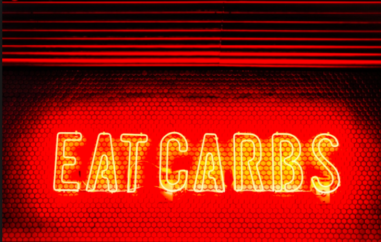Be Sweet To Your Heart This February
1
Hey Ladies, I am back today to make another important PSA. With September long gone, our conversations about ovaries have shifted quite a bit. Instead, this month, we are talking about heart health. Reminder: February is not just a month to eat conversation hearts. It’s also American Heart Month! Millions of Americans will spend the next twenty-eight days promoting both the need for heart disease awareness and the importance of heart disease prevention. So here I am, back again, to give you my spiel, and hopefully give you some helpful tips to reduce
SelfishMother.com
2
your risk of heart disease.
First off, let’s get perspective on the issue. Heart disease is actually the number one leading cause of adult deaths in the United States. It is the cause of one in every four adult deaths per year. Originally deemed a “man’s disease,” heart disease affects both genders. In fact, according to published statistics from Go Red for Women, “An estimated 44 million women in the U.S. are affected by cardiovascular diseases.” So why am I depressing you with these statistics? Because heart disease isn’t inevitable;
SelfishMother.com
3
in many cases, it can actually be prevented which is why we are talking about it today.
There are a number of risk factors that can lead to heart disease, and yes, some people are predisposed to develop heart disease. Factors like age, gender, race, your family’s medical history, and your past experiences with a heart attack or stroke are all risk factors that you have no control over. However, you can control risk factors such as high blood pressure, high cholesterol, obesity, type 2 diabetes, lack of exercise, and your smoking habits. Curious to
SelfishMother.com
4
know more? I’ll break it down for you:
High Blood Pressure – There are medications that you can use to control high blood pressure like diuretics or ACE Inhibitors, but you can also reduce your need for medications and naturally lower your high blood pressure, with a simple diet change. I would suggest researching and talking to your doctor about the DASH diet. DASH stands for Dietary Approaches to Stopping Hypertension (hypertension is another name for high blood pressure), and it’s been tested and endorsed by the National Heart, Lung, and
SelfishMother.com
5
Blood Institute. By eating more fruits, vegetables, and whole grains while reducing foods high in saturated fats and refined sugars, the DASH diet has been shown to reduce high blood pressure in the first two weeks.
High Cholesterol – There are also a number of different medications that you can take to help lower your cholesterol, but these medications come with their own risk. For example, there are thousands of consumer lawsuits currently being fought over cases of severe bleeding caused by blood thinners prescribed for those with high cholesterol
SelfishMother.com
6
who have experienced atherosclerosis as a result. In this case, as well, we can turn to food before prescription drugs. The Harvard Medical School suggests eating foods with polyunsaturated fats, known to reduce your body’s LDL or “bad” cholesterol. Foods with soluble fiber help to remove this cholesterol from your body and consuming foods with plant sterols and stanols help reduce the amount of LDL that your body absorbs. Here is a list of foods known to lower your high cholesterol.
Obesity and Lack of Exercise – I paired these two together
SelfishMother.com
7
for good reason. A regular exercise plan paired with a nutritious diet can promote weight loss. I know, it’s pretty common knowledge, but did you know that obesity puts you at a greater risk for high blood pressure, high cholesterol, and diabetes? Regular exercise, on the other hand, can reduce your risk of all three while helping you to a healthy weight.
Type 2 Diabetes – You’re probably wondering how type 2 diabetes is related to heart disease. Well, not only does diabetes increase your likelihood of having high cholesterol and high blood
SelfishMother.com
8
pressure, but also consistently high blood glucose levels can strain and eventually damage your blood vessels and the nerves that run through your heart and blood vessels. Now, unfortunately, I can’t tell you that food will solve all your diabetic problems. Individuals with type 2 diabetes require regular insulin injections and blood glucose monitoring, however, they can more efficiently control their blood glucose levels with the help of diet. Diabetics and even pre-diabetics (individuals with high blood glucose levels that aren’t high enough to be
SelfishMother.com
9
diagnosed as diabetes) are encouraged to use the glycemic index when meal planning to control and reduce spikes in blood sugar levels.
Smoking Habits – I would hope that the years of advertising campaigns from the CDC among other organizations warning of the dangers of smoking cigarettes would already have prompted you to quit. But, if are still clinging on to that bandwagon, here are a few facts for you. According to WebMD, “Roughly 1 out of 5 deaths from heart disease is directly related to smoking.” Smoking raises your blood pressure, reduces
SelfishMother.com
10
the amount of oxygen that gets to your heart, and increases your risk of blood clots which in turn can cause a heart attack. Here are some resources to check out if I have successfully convinced you to quit smoking.
Regardless of whether you know you have a higher risk of heart disease or not, taking simple preventative measures can reduce you and your family’s risk of heart disease along with other serious health conditions. Challenge yourself to exercise for thirty minutes a day, five times a week. Pushing the stroller counts! Or how about adding
SelfishMother.com
11
more fruits and vegetables to your family’s diet this month? You can make it a family affair, or just make small changes in your own day to day life, but do something this Heart Month. Be sweet to your heart this month, and make a positive change for your health and your future.
SelfishMother.com
This blog was originally posted on SelfishMother.com - why not sign up & share what's on your mind, too?
Why not write for Selfish Mother, too? You can for free and post immediately.
We regularly share posts on @SelfishMother Instagram and Facebook :)
Caitlin Hoff - 31 Jan 18
Hey Ladies, I am back today to make another important PSA. With September long gone, our conversations about ovaries have shifted quite a bit. Instead, this month, we are talking about heart health. Reminder: February is not just a month to eat conversation hearts. It’s also American Heart Month! Millions of Americans will spend the next twenty-eight days promoting both the need for heart disease awareness and the importance of heart disease prevention. So here I am, back again, to give you my spiel, and hopefully give you some helpful tips to reduce your risk of heart disease.
First off, let’s get perspective on the issue. Heart disease is actually the number one leading cause of adult deaths in the United States. It is the cause of one in every four adult deaths per year. Originally deemed a “man’s disease,” heart disease affects both genders. In fact, according to published statistics from Go Red for Women, “An estimated 44 million women in the U.S. are affected by cardiovascular diseases.” So why am I depressing you with these statistics? Because heart disease isn’t inevitable; in many cases, it can actually be prevented which is why we are talking about it today.
There are a number of risk factors that can lead to heart disease, and yes, some people are predisposed to develop heart disease. Factors like age, gender, race, your family’s medical history, and your past experiences with a heart attack or stroke are all risk factors that you have no control over. However, you can control risk factors such as high blood pressure, high cholesterol, obesity, type 2 diabetes, lack of exercise, and your smoking habits. Curious to know more? I’ll break it down for you:
- High Blood Pressure – There are medications that you can use to control high blood pressure like diuretics or ACE Inhibitors, but you can also reduce your need for medications and naturally lower your high blood pressure, with a simple diet change. I would suggest researching and talking to your doctor about the DASH diet. DASH stands for Dietary Approaches to Stopping Hypertension (hypertension is another name for high blood pressure), and it’s been tested and endorsed by the National Heart, Lung, and Blood Institute. By eating more fruits, vegetables, and whole grains while reducing foods high in saturated fats and refined sugars, the DASH diet has been shown to reduce high blood pressure in the first two weeks.
- High Cholesterol – There are also a number of different medications that you can take to help lower your cholesterol, but these medications come with their own risk. For example, there are thousands of consumer lawsuits currently being fought over cases of severe bleeding caused by blood thinners prescribed for those with high cholesterol who have experienced atherosclerosis as a result. In this case, as well, we can turn to food before prescription drugs. The Harvard Medical School suggests eating foods with polyunsaturated fats, known to reduce your body’s LDL or “bad” cholesterol. Foods with soluble fiber help to remove this cholesterol from your body and consuming foods with plant sterols and stanols help reduce the amount of LDL that your body absorbs. Here is a list of foods known to lower your high cholesterol.
- Obesity and Lack of Exercise – I paired these two together for good reason. A regular exercise plan paired with a nutritious diet can promote weight loss. I know, it’s pretty common knowledge, but did you know that obesity puts you at a greater risk for high blood pressure, high cholesterol, and diabetes? Regular exercise, on the other hand, can reduce your risk of all three while helping you to a healthy weight.
- Type 2 Diabetes – You’re probably wondering how type 2 diabetes is related to heart disease. Well, not only does diabetes increase your likelihood of having high cholesterol and high blood pressure, but also consistently high blood glucose levels can strain and eventually damage your blood vessels and the nerves that run through your heart and blood vessels. Now, unfortunately, I can’t tell you that food will solve all your diabetic problems. Individuals with type 2 diabetes require regular insulin injections and blood glucose monitoring, however, they can more efficiently control their blood glucose levels with the help of diet. Diabetics and even pre-diabetics (individuals with high blood glucose levels that aren’t high enough to be diagnosed as diabetes) are encouraged to use the glycemic index when meal planning to control and reduce spikes in blood sugar levels.
- Smoking Habits – I would hope that the years of advertising campaigns from the CDC among other organizations warning of the dangers of smoking cigarettes would already have prompted you to quit. But, if are still clinging on to that bandwagon, here are a few facts for you. According to WebMD, “Roughly 1 out of 5 deaths from heart disease is directly related to smoking.” Smoking raises your blood pressure, reduces the amount of oxygen that gets to your heart, and increases your risk of blood clots which in turn can cause a heart attack. Here are some resources to check out if I have successfully convinced you to quit smoking.
Regardless of whether you know you have a higher risk of heart disease or not, taking simple preventative measures can reduce you and your family’s risk of heart disease along with other serious health conditions. Challenge yourself to exercise for thirty minutes a day, five times a week. Pushing the stroller counts! Or how about adding more fruits and vegetables to your family’s diet this month? You can make it a family affair, or just make small changes in your own day to day life, but do something this Heart Month. Be sweet to your heart this month, and make a positive change for your health and your future.
Did you enjoy this post? If so please support the writer: like, share and comment!
Why not , too? You can share posts & events immediately. It's free!
As a Health & Safety Investigator for ConsumerSafety.org, Caitlin uses her background in Industrial Design and her passion for health and wellness to educate consumers. She strives to help people make smart decisions affecting their personal health and that of their families.
LIST




















